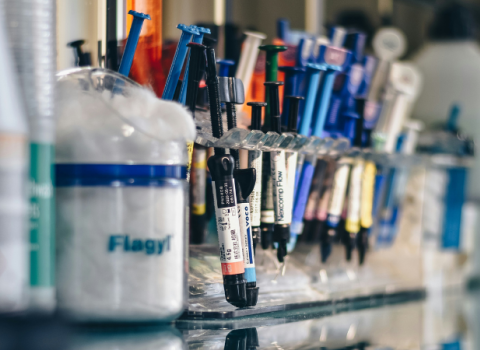Merger
Two Scottish companies, ImmunoSolv Ltd and Grampian BioConsultants (GBC) Ltd, have merged, bringing together expertise in the biology of programmed cell death, or apoptosis, with skills in antibody discovery and design.
The companies say the opportunities associated with their merger are many. In the first place it will allow them to increase two existing revenue streams, from GBC’s antibody contract research services, and from the sale of Immunosolv’s kits for identifying and removing dead cells from tissue cultures.
More importantly, however, the merger offers opportunities to build further value through technologies based on a combination of expertise in the detection and control of programmed cell death with expertise in antibody engineering. Applications include regenerative medicine, highly-tailored protein therapeutics for treating cancer and immune system diseases, and proteins for use in diagnostics.
The merged company will retain the ImmunoSolv name. It will continue to operate from ImmunoSolv’s base in Edinburgh and GBC’s facility in Aberdeen.
ImmunoSolv also announced the completion of a fundraising from existing investors Grampian BioPartners and the Scottish Enterprise Scottish Co-Investment Fund.
In addition, since early 2010, ImmunoSolv has been awarded two Technology Strategy Board funding grants to apply its technology for removing dead cells from cell cultures, to develop clinical grade products and processes in the field of regenerative medicine.
These grants and the fundraising, plus further investment from Edinburgh University, where ImmunoSolv’s technology originated, brings over £500,000 into the company.
ImmunoSolv’s first products are its Dead-Cert reagents and services for detection and depletion of non-viable cells. The lead product is a magnetic, dead-cell removal system, Dead-Cert Nanoparticles, that discriminates and separates viable cells from dead cells and cell debris in vitro. Removal of dead cells enhances the growth of the remaining viable cells and improves their productivity, resulting in cost benefits in biomanufacturing.
Ruth Murray, Chief Executive Officer and co-founder of ImmunoSolv, said the merger with GBC, together with support from Grampian BioPartners and the Scottish Co-Investment Fund, is a key part of ImmunoSolv’s strategy to strengthen its presence in major markets. “Importantly the merger provides ImmunoSolv with the opportunity to drive high value product development and long term shareholder value.”
Andy Porter, co-founder of GBC believes the merger is the route to building critical mass. “Scottish biotechnology has too many one-trick ponies,” he said.





 A unique international forum for public research organisations and companies to connect their external engagement with strategic interests around their R&D system.
A unique international forum for public research organisations and companies to connect their external engagement with strategic interests around their R&D system.